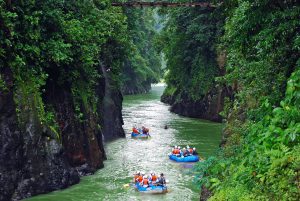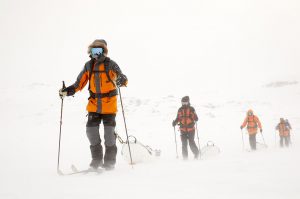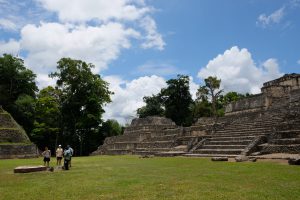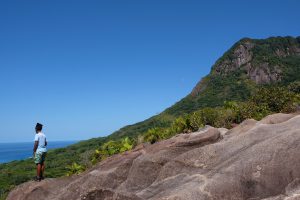
Amelia Duggan goes off the grid in the Uruguayan fishing village of Cabo Polonio
View online at worldwidedestinationguide.com
Exiting the maze of gorse, the giant motorized cage bumps over the last dune and descends onto a barren beach cradled by a vast, stormy sky. The driver’s enjoying himself, drawing shrieks from passengers as he powers the open buggy through the cold Atlantic surf and onwards towards the cluster of huts on the horizon. I’m in my element too, howling with laughter on the top deck as I’m half-blinded by the salt.
By contrast, Alexandra is not impressed. My travel companion is throwing the driver dark looks as she struggles to shield her hair and suitcase from the spray, while also remaining onboard the careering vehicle.
We’ve spent the past month traveling across Argentina’s sun-bleached pampas together, looping northwards from the capital to Brazil and back before crossing the Mar del Plata to Uruguay. This bucolic, bleak, free-spirited country does not, to Alex’s mind, hold a candle to the ordered boulevards of Buenos Aires and the fine estancias (estates) we’d visited in the north. A seagull swoops close to our heads and she draws her scarf tighter, framing her disconsolate expression with pink wool. I recognise that now is not the moment to mention that our current destination has neither roads nor mains electricity.
Cabo Polonio is every bit the picture-perfect fishing village, with the remoteness credentials to back it up: an unspoiled bohemia perched on a crescent peninsula, beyond the reaches of wi-fi or phone reception. We dismount the buggy amid ramshackle bungalows decorated with shells and salvaged wood sculptures. A gray lighthouse looms nearby. It’s pelting down with rain — weather unheard of in high summer — and we pad through thickening sand towards a bright yellow cabin with the word ‘Hostal’ painted large on the tin roof.
Countless games of gin rummy later, we emerge from our room and find that a crimson sunset has burned away the rain clouds. We heat pasta in the open-air kitchen — a hob under a lean-to roof — and sip watery Quilmes beer, admiring the last embers of light as they sink into the sea.
Darkness descends. It’s a moonless, starless night and the disembodied sounds of barking and scurrying make me want to crawl into a hammock and cower until morning. But there are also the unmistakable noises of music and laughter on the breeze, and the backpacker’s credo says ‘never miss a party’. (Fine — that’s my personal motto.)
We dig out our torches and head into the settlement, the heavy tattoo of drums drawing us through sandy paths littered with lounging dogs and the odd white rabbit. Our ears lead us to a shack covered in palm-fronds and branches that, in the light of our narrow beams, looks as if it had grown plant-like from the sand. There’s no discernible entrance and it’s several minutes until someone inside stumbles out through the leaves, intoxicated, showing us the way in.
Inside, we’re greeted by a trio of dark-haired men swaying in candlelight to the rhythms of their instruments: a mahogany fiddle, a Spanish guitar and a large, rough-leather drum.
A waiter takes our drinks order — dos copas de ron y cola, por favor — and we settle down on a wooden bench beside three dreadlocked travelers, our backs sinking into the leafy walls and our toes nestled in the sand under-foot.
The acoustics are otherworldly. The fiddler’s melody engulfs me and, for a moment, the dark corners of the room and the utter silence beyond convince me that we’re in space; that nothing exists beyond this hut. As the rhythms crescendo I imagine that my heartbeat is the drumbeat; that the drummer is keeping me alive.
He stops suddenly — mid-song — lifts a bottle from the sand and takes a slow drink.
I hold my breath.











